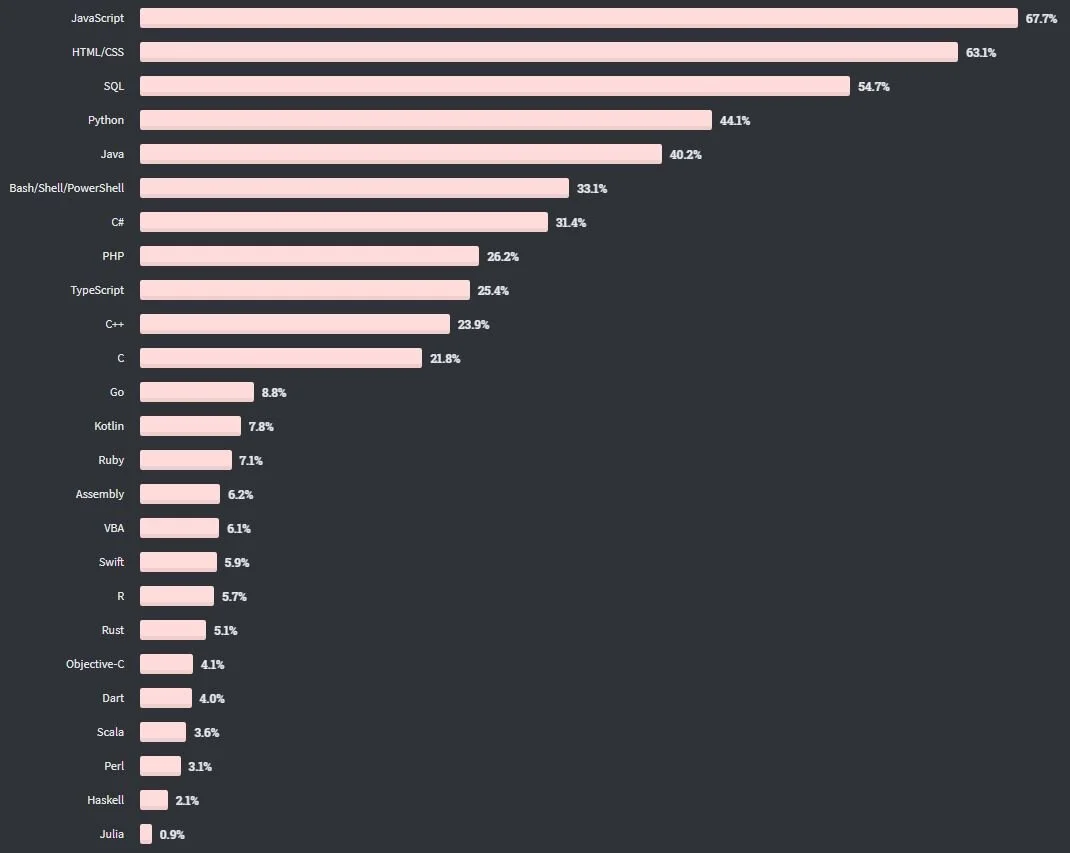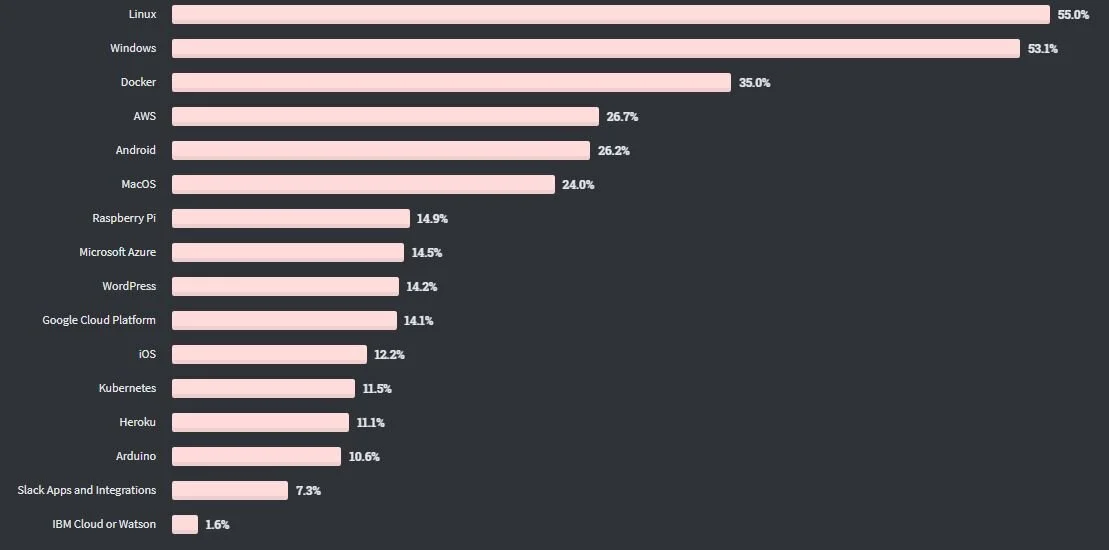2020 Technology trends: DevOps & Software Development
If you’re trying to break into tech or land a higher paid job, learning certain technologies will boost your chances of standing out.
Companies have their own unique needs, goals, and challenges. The use of the right technology stack is extremely important for a successful product. However, choosing the right blend of technology is always tricky. Organisations take multiple factors into account when choosing their tech stack and developers do the same when choosing what languages to learn.
As IT recruiters, we are often asked which technologies are in high demand by our candidates. Our clients are also always interested to know where to find and how much to pay for the right technical skill set.
Allura Partners have extensive experience placing technologists in the Commerce & Industry, Financial Services, Technology and Private Equity markets, which gives us an in-depth insight into the hiring trends across Australia.
We combined our market knowledge with the results of the 2020 Stack Overflow’s Annual report and put together this short article to guide our Developers and DevOps candidates on what technologies they should be investing their time and effort to learn. This will also help hiring managers understand which skill sets may be harder to find, which usually means they should be prepared to pay a bit more for.
What are the most popular Programming Scripting and Markup languages in 2020?
Chart 1: Most popular programming, scripting, and mark-up Languages according to 2020 Stack Overflow’s Annual Survey
Without a doubt, JavaScript is one of the most popular programming languages in the world. It has been the most used programming language since 2012.
69.7% of Stack Overflow’s Annual survey 2020 respondent-developers use JavaScript. It is also the most popular programming language with the highest number of opened pull requests on GitHub.
HTML/CSS and SQL hold the second and third spot respectively on the list followed by Python with its strong rise in popularity. Java, Bash/Shell/PowerShell and C# still remain quite popular. Going further down the list, we can see moderate gains for TypeScript, edging out C in terms of popularity. Ruby, once very popular, has declined (7.5%), being surpassed by newer, trendier technologies such as Go (9.4%) and Kotlin (8.0%). No surprise, PHP continues its ‘five-year slump’. Once considered a sexy language, PHP is fading in popularity, especially with the rise of languages such as Python.
Some interesting news this year … Dart is definitely growing (3.7% compared to 1.9% last year) with Google’s announcement of Flutter for cross-platform mobile app development. Kotlin has grown pretty quickly as an alternative for Java development due to its simplicity, great features and solid library.
C++, a language with its ups and downs, remains strong. Some developers say the new C++20 standard might be one of the main causes for this. Especially because its new capabilities including modules, concepts and coroutines.
Based on the above, it would make sense to focus on the up and coming languages (Dart, Flutter, Kotlin and Rust) which will currently be niche skill sets and create a gap in the market where demand will continue to increase. As a candidate, learning these technologies will put you in a stronger position.
What are the most popular Platforms in 2020?
Chart 2: Most popular Platforms according to 2020 Stack Overflow’s Annual Survey
Linux (55%) and Windows (53.1%) are topping the charts for most used platforms with most stacks sitting on one of the two or sometimes both. AWS (26.7%) is still out in front when it comes to cloud platforms with Azure (14.5%) 2nd and GCP (14.1%) making up ground not far behind in 3rd. Containerisation & orchestration continues its rise in popularity with Docker and Kubernetes featuring quite prominently as well. However, WordPress thankfully is falling away (It retained top spot on a separate chart for “Most dreaded” platform with a whopping 67% of the vote!)
It is worth noting as well that this data is global and will differ in some areas for Australia. A perfect example of this is; Azure is a far more in-demand skillset in Melbourne than it is in Sydney, with more enterprises running on Microsoft which has a knock-on effect on the supporting toolsets that are used.
Our advice for those looking to get into/advance a career in infrastructure engineering or DevOps is, if you don’t already know, learn how to code! Python is the language we see asked for most. Golang, which is a bit more “niche”, would make you an attractive candidate for certain opportunities as well. Infrastructure as code and having backend programming capabilities is where the market demand is heading and those that can’t code will be left behind.
The tech team at Allura Partners is happy to have a chat with anyone that wants to learn more about what is happening in the market. Or, if you’re looking to hire some great people for your team or you are looking for your next career move, please feel free to reach out.
Jake Rose
Infrastructure, Cloud, DevOps & Cyber Security
+612 8821 7315
jake.rose@allurapartners.com.au
Sabrina Matuda
Software Development & Data
+612 8821 7314
sabrina.matuda@allurapartners.com.au


